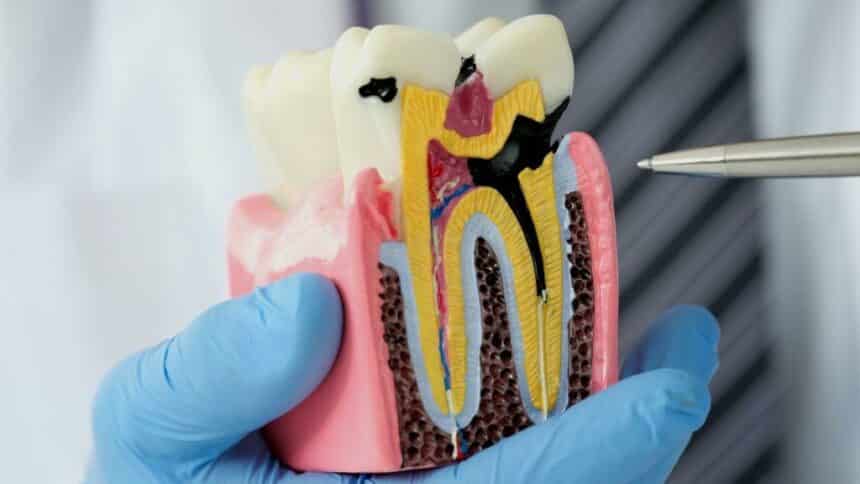According to the Ministry of Health Report, 98.7% of adult Poles have tooth decay. It all starts already in childhood - it is estimated that a statistical 5-year-old already has up to 5 diseased teeth. This is mainly due to a lack of awareness of where tooth decay comes from and how to prevent it. Therefore, let us check how to do it and how the treatment of tooth decay proceeds once it has caught up with us.
What is caries?
Tooth decay is an infectious disease that attacks our teeth. If not treated in time, it can lead to many unpleasant consequences. The caries bacteria gradually destroy our enamel, getting deep into the tooth, attacking the dentin and then the living pulp, which manifests itself in very severe tooth pain. You can read more about this in the article "Tooth inflammation - unbearable pain".
In order to prevent pulp inflammation, timely treatment of caries must be carried out. If you only go to the dentist when your tooth is in a lot of pain, you may need root canal treatment, which you can find out more about in the article "Root canal treatment under the microscope in the UK".
Sometimes tooth decay does not manifest itself in pain and is therefore underestimated, which may result in the extraction of the tooth.
However, this is not the most serious consequence. Untreated tooth decay can lead to a number of serious diseases throughout the body, such as cardiovascular disease, kidney disease and arthritis. You can read more about this in the text "Decayed teeth a danger to the health of the whole body".
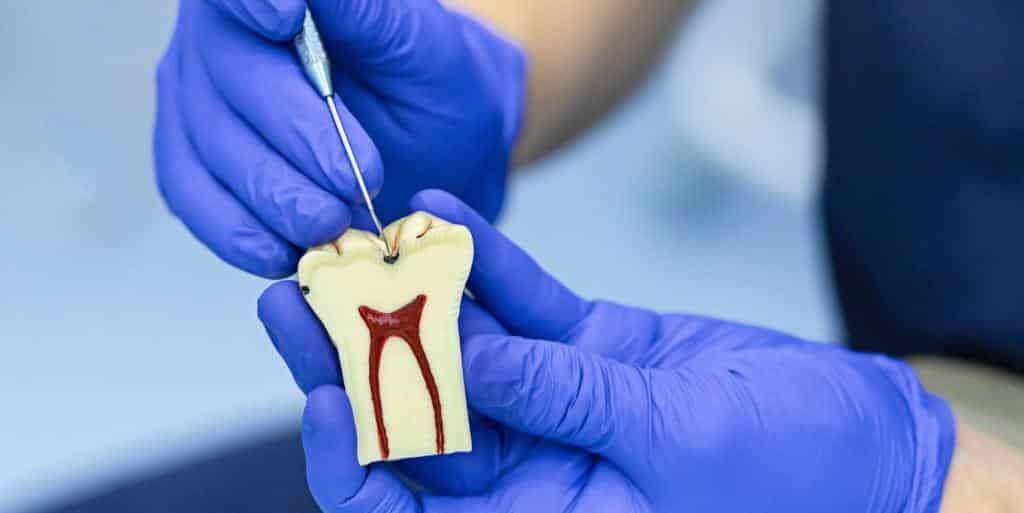
How to prevent tooth decay?
Before answering this question, we will briefly describe where tooth decay comes from in the first place. As we mentioned, it is an infectious disease, thus you must have contracted it from a carrier or from another person with caries.
How is this possible?
All it takes is a brief contact with saliva and tooth decay can find its way into the mouth of the next person. This can happen when you use someone else's cutlery that someone else has just had in their mouth, when you drink from someone else's glass or during a kiss, for example.
It is often repeated that parents should not lick their children's dummy, kiss them on the mouth or use the same cutlery at the same meal. Caries in children spreads rapidly, so caries treatment should be implemented as soon as possible, as you will read in the article "Child caries - causes, symptoms and treatment".
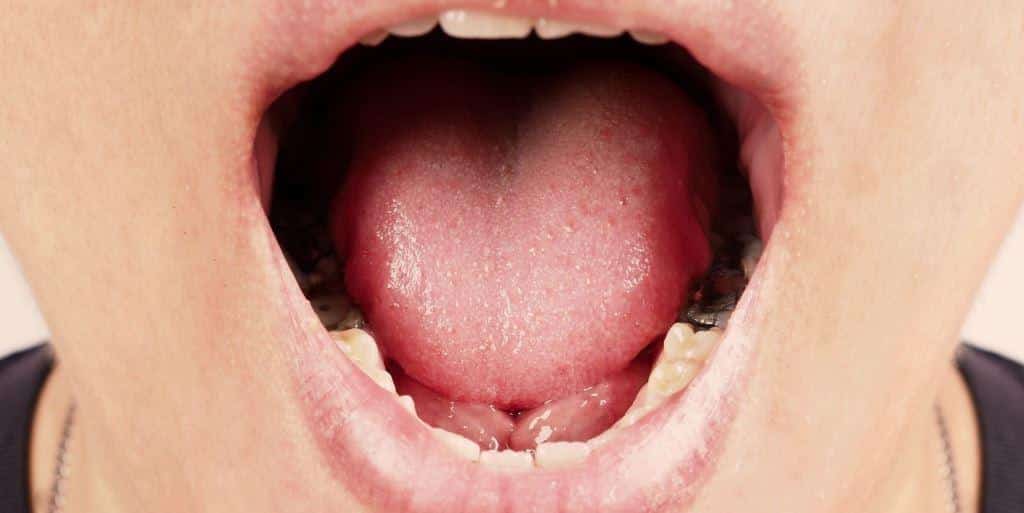
So how do you prevent the development of tooth decay?
The most important factor in preventing its development is good oral hygiene. Brushing twice a day, rinsing the mouth with fluoride fluids and the all-important flossing are essential. Read more about the benefits of flossing in the text "How do you floss your teeth and why is it so important?".
Also, the right diet matters. Avoiding simple sugars or choosing water instead of juices will be very helpful. Drinking water will also help to rinse food debris from the teeth, as well as in the production of more saliva, which also cleans the teeth to some extent during the day.
It is also a good idea to regularly remove deposits and tartar from your teeth in the dental surgery. This is because plaque build-up on our teeth is the perfect breeding ground for carious bacteria. For more information, please see the text "Dental hygiene in the UK - scaling, tooth sandblasting, polishing and fluoridation".
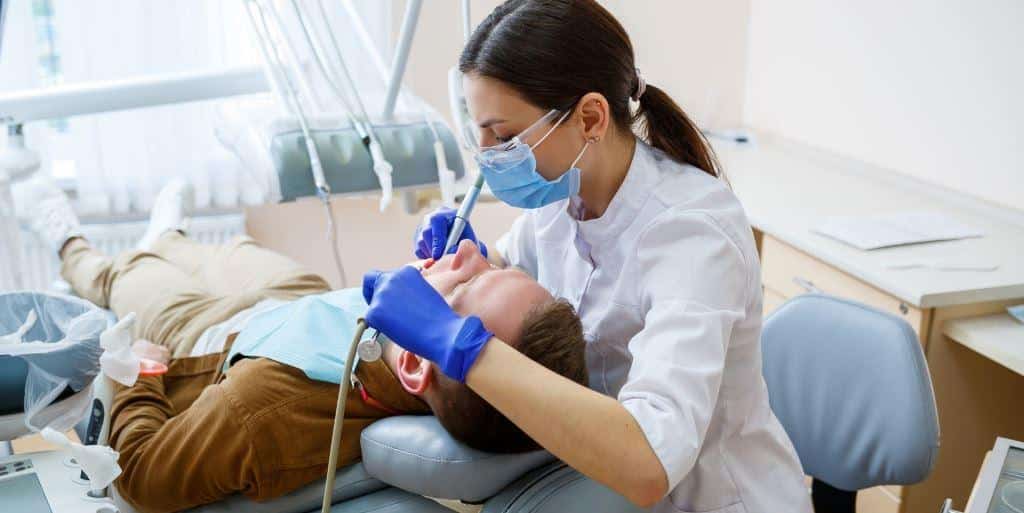
Treatment of tooth decay
To start with, you should go to the dentist every six months or so. Regular visits to the dentist's will not only remove plaque and tartar, but also detect caries in its early stages. It will then be easier and cheaper to treat than an advanced problem.
However, even when you visit your dentist regularly and take proper care of your hygiene In the oral cavity, it is a good idea to keep an eye on your teeth in order to detect in time that tooth decay has set in. One of its first symptoms is small, white, dull spots on the teeth. This means that the enamel has been demineralised, and from here it is only one step to the formation of a cavity.
Treating tooth decay at this stage is very simple, with just a few appropriate habits - perfect oral hygiene and frequent use of a fluoride preparation prescribed by the dentist. The dentist may also recommend in-office remineralisation.
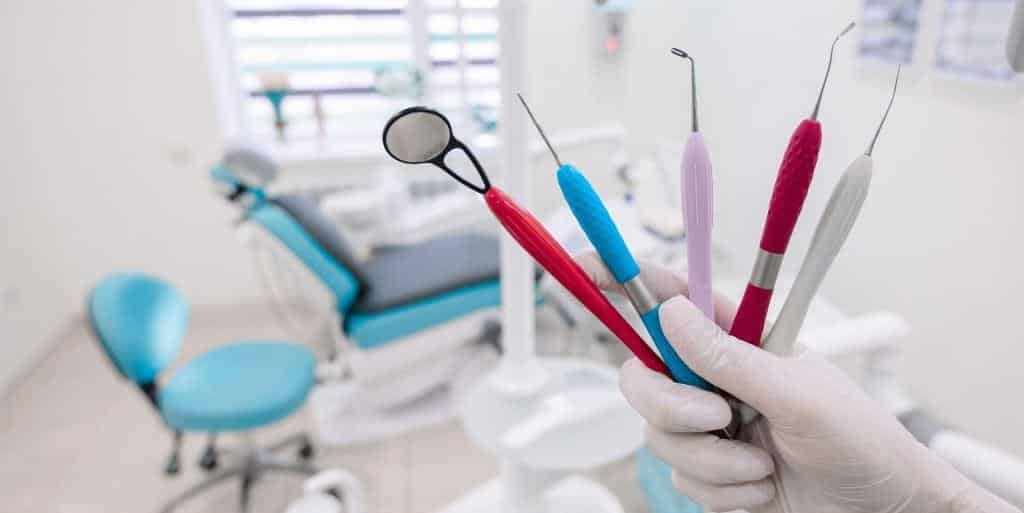
If you miss this point, a cavity, commonly referred to as a hole, is likely to develop. It will then be necessary to remove the decay and fill the cavity. You can read more about this in the article "Filling a tooth in the UK - types of fillings in the UK and their prices".
Advanced tooth decay may require root canal treatment or even removal of the tooth, as mentioned above. Remember also that the more advanced the problem, the more expensive the caries treatment. Therefore, prevention is definitely better than cure.
At our dental practice, you will pay £160 for a hygiene treatment and from £140 for a small composite filling. The cost of root canal treatment is much higher - with microscope treatment starting at £330 for treatment, which must also be completed with a filling.
If the total cost of caries treatment exceeds £350, you can then spread it in instalments. For the first 12 months, the interest rate is 0%. Our system is fully secure and authorised by the Financial Conduct Authority (FCA number 619628).
We invite you to make an appointmentand we will check whether tooth decay is already developing in your mouth.

